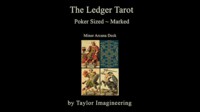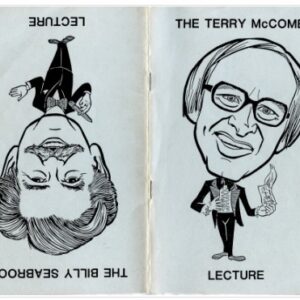Any Card At Any Number Algorithmic Stack
Into the Realm of the Effortless… This is Modulo.
The second book in the series that began with Parse, yet charting an entirely different methodological course.
From the mind that brought you the breakthrough paradigm of Parse, a new chapter unfolds. A deeper current explored. Prepare yourself.
Presented as a limited edition, beautiful oversized Crown Quarto softcover with a matt finish—a companion to its predecessor—lies work Fraser Parker has held back. Until now. Entirely new. Entirely transformative. He has taken the foundations laid by others in these realms and propelled them beyond anything previously dreamt of, both in the ingenuity of the approach and the profound simplicity achieved.
For years, the path of the algorithmic stack, particularly for the coveted Any Card At Any Number (ACAAN), was paved with complexity. Calculation. Mental friction. We accepted it as the price of power.
Fraser dreamt differently.
Modulo is the manifestation of that dream. A labour of love, yes, but more accurately, a relentless quest for simplicity. Fraser hasn't just chipped away at the boundaries; he has dissolved them. He pursued the core, stripping away the extraneous until only the elegant, potent essence remained.
At its heart, Modulo is a powerful algorithmic stack in its own right, allowing you to instantly know the card at any number position in the deck, or conversely, the exact position of any card, with startling ease.
But where it truly redefines possibility is in the application to the Any Card At Any Number plot. Fraser has worked out an ingenious way to instantly know which specific playing card needs to be shifted to the face of the deck, effortlessly positioning any card named by the spectator at any number position they name. We cannot overstate how simple he has made the formula to achieve this; the way he has approached the problem removes all the complicated calculation traditionally associated with such feats. This approach means you can place any card at any number position dynamically, as an alternative to needing to know every card's position in a set stack—although, naturally, the Modulo algorithmic stack allows for that instantaneous knowledge too.
Imagine the result:
A spectator names any card and freely names any number.
The cards are removed from their box and handed to the spectator. They deal down through the cards and their freely thought-of playing card is found precisely at the exact, freely thought-of number position.
How is this clarity achieved? Not through frantic calculation. Not through complex mathematical processes. But through your use of startlingly simple mental shifts. So intuitive, so direct, they feel less like a process and more like simple knowing.
The work happens in moments. Effortlessly. Almost playfully. It's a solution so oddly conceived, yet so powerfully direct, achieving it feels like experiencing real magic yourself.
He has taken the algorithmic approach and bent it to his will, crafting a system where the complex becomes child's play.
Furthermore, you can perform the Any Card At Any Number, and the algorithm is instantly ready to perform again, without needing to reset the stack's starting point. The Modulo algorithm remains stable, its power undiminished even if the deck's order has shifted. The stack's precise starting sequence becomes fluid, irrelevant to executing this specific miracle repeatedly.
And remember, the underlying stack structure when in a set position inherently allows for dual knowing: instantly know the number position for any card named generally within the stack, or the card at any position thought of.
Fraser shares various handlings for the necessary shift of the deck. Learn to conceal the work using ingenious psychology, hidden in plain sight, or as the cards leave the box using edge markings uniquely synergized with this system. Or, employ a purely tactile method without needing to look at the deck—no visual cues needed—achieving the impossible before they even register the deck is fully in play. Find the exact card instantly. No estimation. No Memorized Deck. Just effortless arrival.
This is not merely an addition to his previous explorations with algorithmic stack work. Modulo elevates the very concept. It takes the potential glimpsed before and refines it to a point of shocking purity. Designed, from its very inception, to be the simplest possible pathway to achieving the Any Card At Number effect and other miracles. Simple formulas. Simple shifts.
Fraser himself is startled by the elegance finally achieved. The solution he chased for years, the one that felt like a distant dream… is here. Realised. Perfected. He is extremely proud of this work and happy it is finally ready to share.
He considers this the definitive version. Perhaps the final word on achieving ACAAN through these means.
You will read the method. You will try it. And you will likely shake your head in disbelief at how direct, how clean, how simple this truly is.
The dream of effortless, algorithmic mastery is no longer a dream—it is Modulo.
You will perceive within this approach an organic simplicity, an inherent rightness… it resonates not as something created, but as something recognised. A principle that existed beneath the surface, simply waiting for the proper awareness to bring it into the light. You'll find yourself pondering not just how it was uncovered, but why it remained hidden in plain sight for so long.
Discover the secret yourself, within the pages of this limited edition soft cover. Only 80 physical copies of this book will ever be printed. Get it whilst you can in this format.




